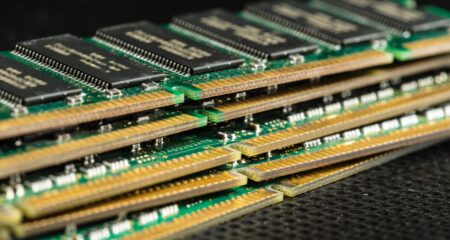All businesses have been faced with rapid and significant market changes and buying behaviours, allowing those that have redefined their business to thrive and grow and those that have not to shrink or even close.
Technology has a major role to play in facilitating rapid organisational change and efficiency by converting large amounts of data into business data or insights that can be used to create operational efficiencies and business innovation.
With the onset of the fourth Industrial Revolution, agility is key — and it’s agility that stands medium businesses in good stead! Due to their size, mid-tier businesses can transform faster than big organisations. That is not to say that big business is not transforming, or that they are not able to do so quickly, it is just that medium-sized business have fewer obstacles to overcome — global approvals, consistency, consensus and business procurement, approvals and legacy systems and infrastructure.
There is no doubt that IT-as-usual cannot be the way forward. To better respond to the needs of their business to survive and grow, medium businesses can take advantage of Dell Technologies’ “as-a-service” capabilities. Project Apex has expanded Dell Technologies’ “as-a-service” capabilities and allows medium-sized businesses to access Dell technology on demand, across storage, servers, networking, hyperconverged infrastructure, PCs and broader solutions. Scheduled for the first half of 2021, Project Apex will radically simplify how medium-sized businesses consume and deliver IT services to accelerate digital transformation, by allowing for choice and flexibility on how they consume IT infrastructure.
Consumption model
The good news for medium-sized businesses is that Project Apex has usage-based consumption models to cut costs, boost agility and gain revenue. Medium-sized businesses are often cash-flow dependant and can arrange payment terms accordingly. It is not only about cash flow, though: Many medium businesses do not know what their fortunes will look like, even in the near future, so allowing them to consume technology as they use it saves on big initial outlay costs.
According to a white paper produced by Dell Technologies, “the edge exists wherever the digital and physical world intersect, and data is securely collected, generated and processed”. With change being a constant, businesses need to operate at the edge where they can “generate actionable insights, digitise their business processes and even transform their customer experiences”.
Edge computing works in conjunction with cloud computing where cloud analytics that are time sensitive are pushed the edge where data is quickly collated and analysed to turn into actionable insights. Eighty percent of inventory control, for example, is just counting what is on the shelf. Automated inventory control is more accurate than manual inventory tracking, which is error-prone and time-intensive. Automated inventory management can track supply and re-order items when supply is low, without requiring a person to physically take inventory. Using edge computing, connected devices are able to complete local data analysis, sending only necessary data like an order, or a final updated inventory count to a central server or data centre.
 Another good example is how AI and edge computing are making CCTV or video footage almost “smart”. Real-time filming using CCTV means massive amounts of data are produced. Edge computing analytics is a more efficient use of bandwidth and storage. Many businesses store the data produced from CCTV in case they have an insurance claim but they are not using the data to make money, save money or reduce risk, and that’s exactly what CCTV can do if you pair it with edge computing a clever algorithm based on AI or big data. For example, CCTV can be used to monitor the parking lot of a shopping mall to pick up the temperature of people before they enter the mall, allowing security to be sent to prevent them from entering the mall, where they could spread infection.
Another good example is how AI and edge computing are making CCTV or video footage almost “smart”. Real-time filming using CCTV means massive amounts of data are produced. Edge computing analytics is a more efficient use of bandwidth and storage. Many businesses store the data produced from CCTV in case they have an insurance claim but they are not using the data to make money, save money or reduce risk, and that’s exactly what CCTV can do if you pair it with edge computing a clever algorithm based on AI or big data. For example, CCTV can be used to monitor the parking lot of a shopping mall to pick up the temperature of people before they enter the mall, allowing security to be sent to prevent them from entering the mall, where they could spread infection.
Medium-sized businesses could have an idea for the use of edge computing and AI in their own business but might not have the know-how to implement the idea. Dell Technologies offers a workshop with industry experts from Dubai that work with some of the biggest retailers in the UK and assist with applications using CCTV and AI producing individualised applications to meet specific business needs.
A local example involves the Springboks. Coaching staff have made use of CCTV and AI to examine what the players are doing and how they can improve their game. With Dell being the technology partner of the Springboks, it’s clear that at this level of sport, where as little as a 1% improvement could mean the difference between winning or losing the World Cup, data adds huge value. So, it’s the culmination of talent, training, mental strength and preparation, and the use of data, that can help athletes and teams improve and become world class.
This is undoubtedly an era of disruption. However, it can be a time during which medium-sized organisations can accelerate the digital transformation journeys. Dell Technologies helps medium-sized businesses lay the foundation on which to build an agile, digital organisation with the requisite support to ensure they are managing security, unlocking innovation and modernising their success with finance they can control via Project Apex building on Dell Technologies’ “as-a-service” capabilities and the intelligent use of edge technology, coupled with AI and machine learning.
For more information, please visit delltechnologies.com or reach out to Dell Technologies on the company’s social media platforms @DellTechZA.
- Sabine Dedering is regional sales director, Dell Technologies South Africa
- This promoted content was paid for by the company concerned




